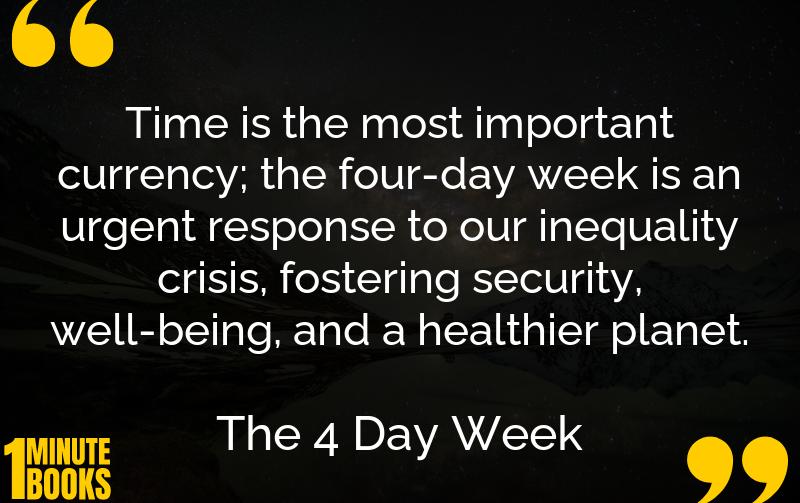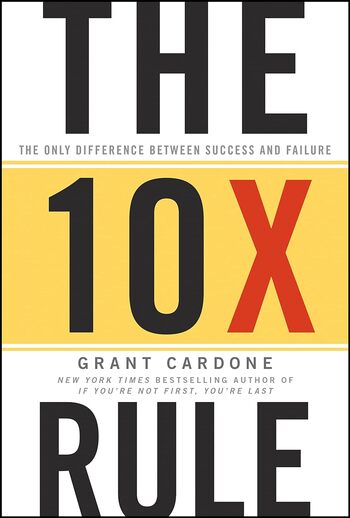
The 4 Day Week by Andrew Barnes presents a flexible work solution to improve productivity, profitability, and societal well-being while addressing inequality and environmental crises.
Main Lessons
- Transitioning to a four-day workweek can enhance employee productivity and satisfaction.
- Flexible work arrangements reduce operating costs and promote talent retention.
- Improved work-life balance contributes to mental and physical well-being.
- The four-day week fosters a more equitable and sustainable society.
- Flexible work can mitigate the negative impact of the gig economy.
- The reduction in commuting can significantly cut greenhouse gas emissions.
- The four-day week serves as a countermeasure to excessive wealth inequality.
- Employers must engage employees in the process for successful implementation.
- Clear communication and leadership by example are vital during the transition.
- The four-day workweek can preserve capitalism while ensuring worker security.
- Emphasizing flexibility can meet individual employee needs effectively.
- Organized labor has a history of advancing workplace reforms.
- Social responsibility initiatives, like charity work, enhance organizational impact.
- Economic models must evolve to sustain both prosperity and worker well-being.
- Time’s value as currency highlights the four-day week’s importance.








